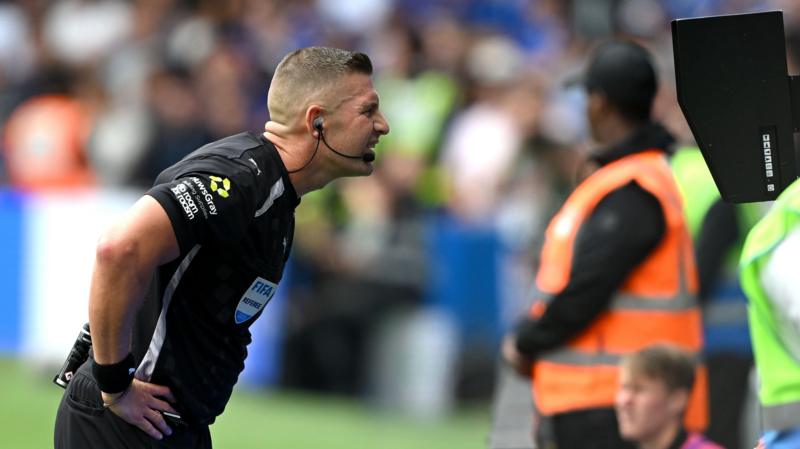Webb Admits to 'Misjudgment' in Controversial Disallowance of King's Goal




When Fulham forward Josh King thought he had put his team in the lead against Chelsea, the away fans erupted in jubilation, only to be hushed moments later. A decision by the match officials disallowed the goal, leading to a storm of controversy and debate that continued well beyond the final whistle of the match. Howard Webb, the chief of the Professional Game Match Officials Limited (PGMOL), later addressed this contentious decision, labeling it a “misjudgement.”
The incident occurred during a climactic moment in the closely contested London derby. King, who had been playing an influential role throughout the game, appeared to have scored a legitimate goal. However, the match officials ruled it out due to an offside decision. Replays and subsequent analysis, however, suggested that the decision was more ambiguous than initially thought, stirring widespread discussion among fans, players, and pundits alike.
Given the high stakes of the encounter, the decision garnered significant attention. Howard Webb’s admission of error by the officials is noteworthy, demonstrating a refreshing transparency from PGMOL, the body responsible for overseeing match officials in professional English football. Webb’s commitment to acknowledging mistakes is part of a broader initiative to foster greater understanding and communication between football's governing bodies and its global fanbase.
The implications of such an admission are significant, particularly in a sporting landscape increasingly influenced by technology and instant replay. The use of Video Assistant Referees (VAR) has been both lauded and criticized since its introduction. Proponents argue that VAR leads to fairer outcomes, while critics lament its impact on the flow of the game and the spontaneity of celebrations, as seen in the Fulham-Chelsea match.
Webb’s comments also illuminate the pressures and challenges faced by referees and their assistants in an era where every decision can be scrutinized in slow motion, from multiple angles. The pace of the modern game and the thin margins that often distinguish lawful play from infractions mean that referees are required to make split-second decisions that can alter the course of a match, a league season, and even careers.
This incident offers a segue into wider conversations about the spirit versus the letter of the law in sports officiating. While accuracy is paramount, the nature of football and its rules can sometimes leave ample room for interpretation, raising questions about consistency and the objective application of the rules.
The disallowance of Josh King’s goal serves as a crucial case study in the ongoing evolution of football refereeing. It underscores the importance of ongoing training and development for officials, and the potential need for further tweaks in how technology is integrated into the decision-making process on the field. Moreover, it reflects an ongoing commitment from football’s regulatory authorities to ensure that outcomes are as fair and just as possible, acknowledging and learning from mistakes when they inevitably occur.
As Webb and the PGMOL continue to navigate these challenging but transformative times, feedback from all football stakeholders — players, coaches, fans, and the media — will be essential. Their perspectives on incidents like these can help to refine the processes that underlie decision-making in games, ensuring that football remains not only a sport of passion and excitement but one of fairness and integrity.
In the meantime, Fulham, Chelsea, and their supporters are left to ponder what might have been in a game that was as memorable for its controversy as for its competitive nature. As the season progresses, all eyes will be on how similar situations are handled, perhaps with a keener sense of the difficult job that referees hold and the advanced technologies at their disposal.